Bowie collaborator Erdal Kizilcay on “Glass Spider” and “Never Let Me Down”
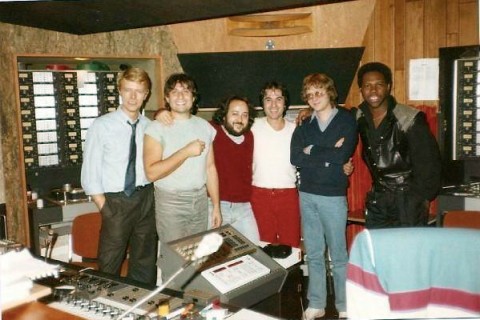
Erdal Kizilcay is a Turkish born multi-instrumentalist who spent over ten years collaborating with David Bowie on a number albums including 1987’s Never Let Me Down, 1993’s The Buddha of Suburbia and 1995’s Outside. He also played bass guitar in two consecutive world tours: The Glass Spider Tour of 1987 and 1990’s Sound + Vision Tour.
In celebration of the excessive, theatrical, some would say overblown Glass Spider Tour, a Glass Spider Band has emerged featuring two original members; Erdal himself and keyboard player Richard Cottle. They are joined by new personnel and will be recreating Bowie’s greatest hits on 17 December 2013 at the Under The Bridge venue in London. We caught up with Erdal a few weeks ago to talked to him about working with David Bowie and touring with him in the late ’80s and early ’90s.
SuperDeluxeEdition: How did this new Glass Spider show come about?
Erdal Kizilcay: The company Bloomberg wanted to do a Bowie thing. Me and Richard Cottle [are involved] – he also played on that record. I did the whole album, the Never Let Me Down album. About 80% of that album is me. Bloomberg wanted to do a Bowie thing with Tom Wilcox – he’s organising this Glass Spider concert in December and he’s curator of the ICA. Next week we’re also doing Iggyfest at the ICA, since I also did the Iggy Pop album Blah Blah Blah.
SDE: Was that the first time you worked with David, on the Blah Blah Blah album?
EK: Absolutely, yes…. [pause] sorry no! We’re talking about 25 years ago, even more actually. I was called in to Montreux, to Mountain Studio to help with his demos for the Let’s Dance album. Nile Rogers was there and they needed a bass player, and I had a name for myself here in Switzerland, so they called me in.
SDE: That’s interesting, so you played on the demos for Let’s Dance, but you obviously weren’t involved in the actual final sessions for the album.
EK: No, but they kept my bassline for either Let’s Dance or China Girl – one or the other, I can’t remember! Anyway, David was living in Lausanne at that time, the French part of Switzerland and I was living in Neuchatel which is not far from Lausanne, and David called me in because he knew I could play many different instruments and he had this idea to do this Iggy project. He said “we can do this easily, it’s not difficult” and actually we finished the whole album – or I finished my part of it – in two weeks. So that was the Blah Blah Blah album and I played nearly everything on it. Kevin Armstrong played some guitar stuff and [the Sex Pistol’s] Steve Jones from L.A. played a solo on one track [Cry for Love].
SDE: That Iggy Pop record was commercially quite successful and that led you to working with David on the Never Let Me Down album.
EK: Yes, I guess so.
SDE: What are your thoughts looking back on the Never Let Me Down album because lots of people – not to put too fine a point on it – don’t like it because of the ‘80s production preferring the rich heritage of his ‘70s work. Even Bowie himself has said some uncomplimentary things about it over the years. Do you have fond memories of those sessions and making that record?
EK: Well actually, yes. At the time when we were doing it David was very, very happy! He got some bad reviews from critics for the album but I didn’t even know about it, I just did what I had to do. He asked me to arrange the strings, so I arranged the strings. I played them myself, I did this, that and the other. He used to call me ‘my invincible Turk’. Those were his words. He was telling everyone “I’ve found this guy, and he can play everything”. You can read it in interviews at the time. At the same time we did film music for When The Wind Blows, a song called Girls, which was sung by Tina Turner [later used as the B-side to Time Will Crawl], and another track for the Never Let Me Down album called Too Dizzy. With all this work David was very happy. He used to come to my place twice a week, and we would work together. But suddenly – I don’t know what happened – but I don’t think the Glass Spider Tour was that successful, from my point of view…
SDE: Not successfully in what way? Commercially, critically..?
EK: Probably, critically. To be honest with you I wasn’t really into David Bowie [before I started working with him]. I didn’t have that much information about him, I’m more a kind of jazz or jazz-rock player. I’d heard a few songs that I used to love like Space Oddity or Life On Mars, but not much more than that. We used to meet together at my studio and we’d have lunch at my house and one day he was looking at my records and said “Oh, you don’t have any records of mine, Erdal” [laughs] and I said “No, I don’t – but that’s probably why you like the way I’m playing because if I knew 100% of your stuff it probably wouldn’t work [as well]”. But anyway, with Glass Spider I read some critics and they really didn’t like it.
SDE: Personally, did you enjoy the theatrical aspect of that tour, or was it more about the music for you?
EK: I wasn’t involved in the theatrical stuff, really. But it was probably too much, too big a stage. It was the first really big thing for me, and my career and I had to go so far away – we travelled nearly the whole world. There was stress every day. Stage-wise there were five dancers and Toni Basil choreographed all that. These people were well known in the art world, or dance world but they were trying to put things into the songs were I just thought sometimes “It’s not working, man”. You could never tell these kind of things to David. He wouldn’t even listen.
SDE: Bowie’s mentioned since that time about how much stress he was under during that tour. Was that apparent to you at the time?
EK: He was stressed during Sound + Vision [the greatest hits tour that followed in 1990 – Erdal was the bass player]. You could really see that, and the concept was very different. The band were really small in the corner of the stage and the concept was more about the image and the film behind him. It was just him and Adrian Belew in front. One day he had a fight with David on-stage and broke his guitar, so that was a horrible thing. He [David] was very stressed, especially in South America. He didn’t even come to the sound checks.
SDE: You mentioned Too Dizzy earlier. Now you co-wrote that song, but David took it off the album after the first pressing was issued. You must have been a bit upset about that?
EK: He told me at the beginning that Ronnie Spector wanted to use that track. But I’ll tell you honestly that something happened, because I worked with three or four, probably five albums with David, the last one being Outside [1995], but up until now I have 24 co-written songs and it’s good that you ask me because yes, I was upset. He changed his way of being with me at the end of the recording of Outside. I don’t even know why, for what reason. We were very close friends. I don’t know if he wanted to punish me – talking about Too Dizzy – that he didn’t want me to have anything on the new release that was Never Let Me Down. That’s very possible. Yes, I was upset. From now on I don’t think I would wish to work again with David Bowie.
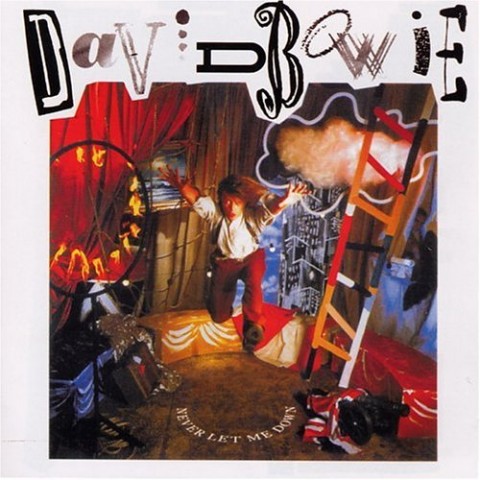
SDE: On the Outside album you’re fully credited with being a co-writer of some of those songs. You’re not complaining about that are you, you got your credit for your involvement?
EK: No, no. It’s just his behaviour was very strange. After Never Let Me Down – he wasn’t happy about Too Dizzy but we still did some other albums like Buddha Of Suburbia.
SDE: I did want to talk to you about that album, because it’s one of the most interesting projects David has worked on [post-70s] and it’s not very well known.
EK: Yes, but it’s still me again. He made the whole album and I was still his ‘invincible Turk’ and that’s why I don’t get it why the guy could turn 180 degrees. Everything I did with David was great, and if the critics didn’t like it it’s not him, it’s the other people. With musicians, producers and performers if they have success then they made everything, but if it has not really worked out for them, they are not guilty because some other people are responsible.
SDE: Is that what you think happened with Never Let Me Down?
EK: I think so. Obviously after Never Let Me Down I did do some other things with David like The Buddha Of Suburbia and Outside.
SDE: Tell us about the Buddha of Suburbia sessions. It does seem very much you and David.
EK: It was like for Iggy Pop’s Blah Blah Blah album. He wanted me to do certain things. I was painting for him – musical lines, whatever he wanted. He knew me very well by this time, because we’d done so many albums and plus the Glass Spider world tour, so we were friends, still very good friends. So he knew exactly what he wanted and he just let me work on the thing. There was never a negative word. He had very good ideas so I was his [helping] hand if you want. So it really went very well and I still listen to the album and it was really amazing. Some beautiful stuff came out of it.
SDE: Is that your favourite work that you’ve done with David?
EK: Buddha and Outside – I really love them. The Hearts Filthy Lesson from Outside that was my very funky bassline, and The Motel with the fretless bass and the delays, has an oriental feeling. I [still] love Outside today, it’s a really great album and The Buddha Of Suburbia, so yes, they are my two favourites.
SDE: Just going back to the Glass Spider Tour, David has talked about how they set fire to the Glass Spider in a big field at the end of the tour. Were you there for that?
EK: [Laughs] I heard the same thing. It happened in New Zealand in Auckland because that was the last tour date. We came back with David together to Switzerland because he was still living in Lausanne at that time. So we were talking when we landed at the stopover in Sydney, and I said “What happened” and he said “They’re burning it”. I didn’t believe him at the time but afterwards I heard that’s what happened. I suppose it was too expensive to bring back if they weren’t using it again.
SDE: But you weren’t there to witness it?
EK: [Laughs] not in front of the fire, no.
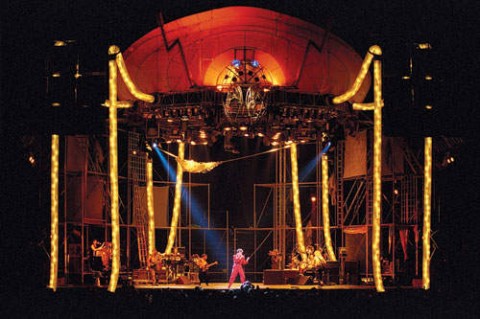
SDE: This new show in December where you are going to be part of the Glass Spider Band, what songs can we expect? Are there just going to be lots of songs from Never Let Me Down, or will there be other too. What can we expect?
EK: Yes, it won’t be especially be like the Never Let Me Down album but it will be like the Glass Spider show, because we used other songs like Heroes, Time etc. So it’s going to be the Glass Spider set list plus a song that I wrote with David called Girls. There should be something like 18-20 songs.
SDE: Who’s going to be doing all the singing then?
EK: Oh, a great friend called Simon Westbrook. He’s an amazing singer and a rather David Bowie-looking guy! We also have Richard Cottle the keyboard player who participated in the original Glass Spider tour with me. I will be interviewed on the stage by Katie Puckrick and will probably talk about memories of the tour.
SDE: What about the theatrical side of the tour. Will you be attempting to recreate anything, or just playing the songs?
EK: At the moment, just playing the songs. There was talk of having some videos behind us, but I don’t really know what’s going to happen. I’ll see next week.
SDE: Finally, one more question,Erdal. Have you listened to David Bowie’s new album The Next Day?
EK: No. It’s been a long time. I realised it’s not working between David and me and I just let it go. I don’t want to hear about anything. That’s my personal decision, I’m not really interested in what he’s doing.
Erdal Kizilcay was talking to Paul Sinclair for SuperDeluxeEdition.
The Glass Spider Band featuring Erdal perform next week on 17 December at Under The Bridge. For more information and ticket details click here.
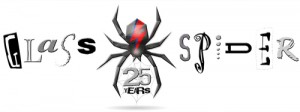

 Interview
Interview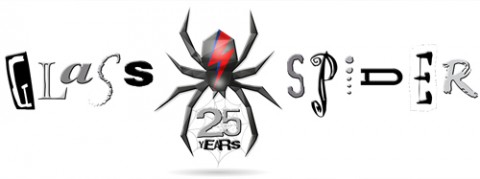

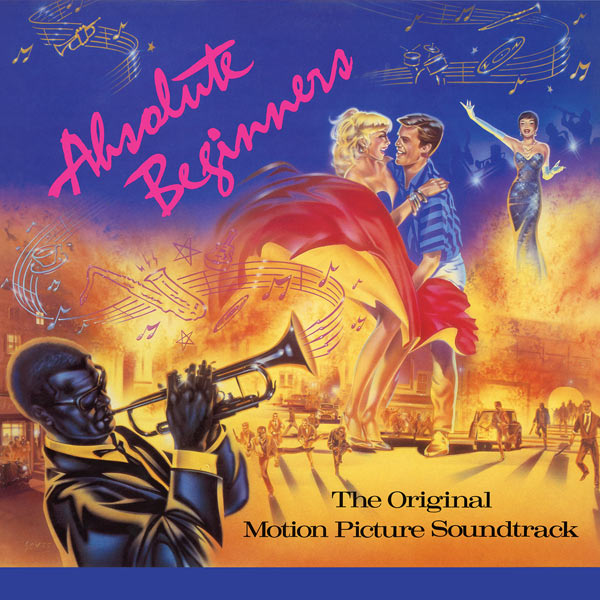
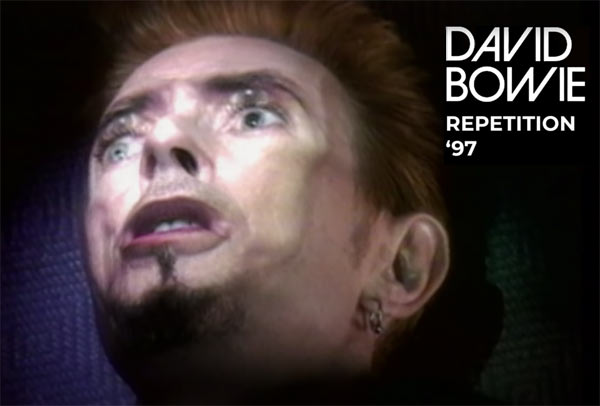
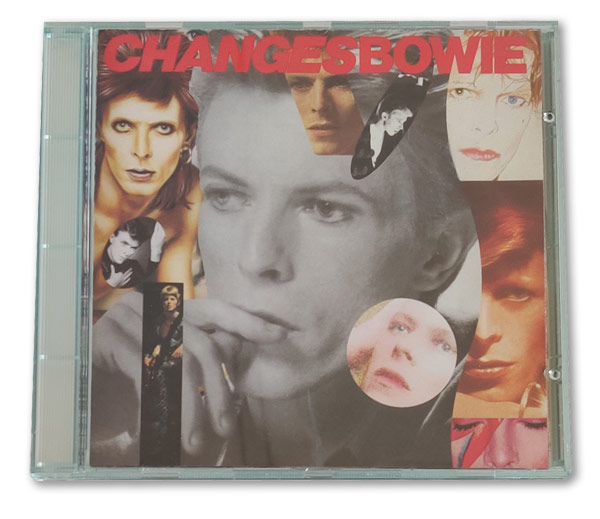
By Paul Sinclair
27